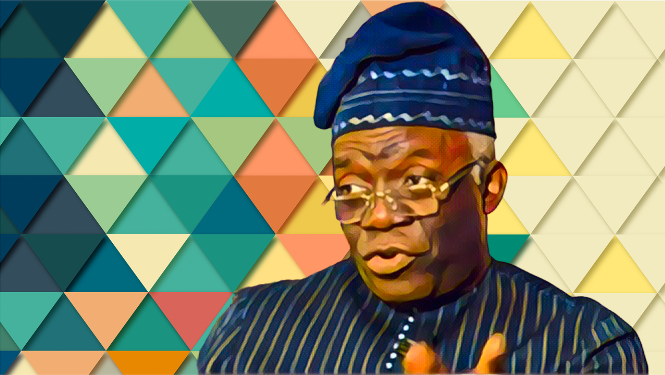Human rights lawyer Femi Falana has accused Nigeria’s Minister of Power, Adebayo Adelabu, of failing the country’s citizens by not ensuring a reliable electricity supply despite recent tariff hikes. This criticism was voiced during an interview with Channels Television on Tuesday.
Falana highlighted what he considered to be fundamental problems with the current power policy when he labeled the new tariff adjustments “the illegality of tariffs.” He claimed that Minister Adelabu and the federal government were ill-equipped to justify these hikes, which were irrational.
The National Electricity Regulatory Commission (NERC) has decided to raise electricity rates dramatically, which is what sparked the debate. In particular, the rate for Band A customers—who are expected to have access to energy for 20–24 hours every day—was raised from N68 to N225 per kilowatt-hour (KWh). Tariffs for Band B and C customers, who are anticipated to receive 16–20 hours and 12–16 hours of electricity supply daily, respectively, were also modified.
Falana emphasized that rather than being founded on advancements in infrastructure or better service delivery, these tariff increases were driven by external pressure from the World Bank and the International Monetary Fund (IMF). He underlined that there was a flagrant disrespect for the legal processes necessary for such an increase.
“Any rise in prices must be preceded by a public hearing if requested by the Distribution Companies (Discos),” Falana clarified, citing Section 116 of the Electricity Act 2023. “This important phase was completely omitted.”
Given the continuous irregularities in the provision of energy, Falana further censured the Nigeria energy Regulatory Commission for failing to provide sufficient justification for the pricing increase. Many customers still frequently experience power interruptions despite assurances of better service delivery, which runs counter to the purported rationale for higher fees.
Falana has raised concerns about what he sees as a larger pattern of impunity inside the Nigerian government and NERC, alleging that they are acting outside the bounds of the legislation intended to control the electricity industry. He says that this shows a disrespect for the rule of law, which ought to guide all government operations.
“I have already given a notice to the commission because these actions represent a governance based on impunity, and we cannot continue like this,” Falana stated, emphasizing the need for accountability and adherence to legal standards.
He further said that the World Bank and IMF, who have been pressuring for the elimination of subsidies, particularly those for petrol and electricity, are getting their wish and the Nigerian government is giving in. Falana claims that these foreign financial organizations support laws that commercialize and raise the price of necessities, rendering them out of reach for the vast majority of Nigerians.
Falana said, “The Honourable Minister of Power is just following the IMF and World Bank’s script.” He maintained that because it puts neoliberal policies ahead of public welfare, this strategy does not serve the interests of Nigerian citizens.



